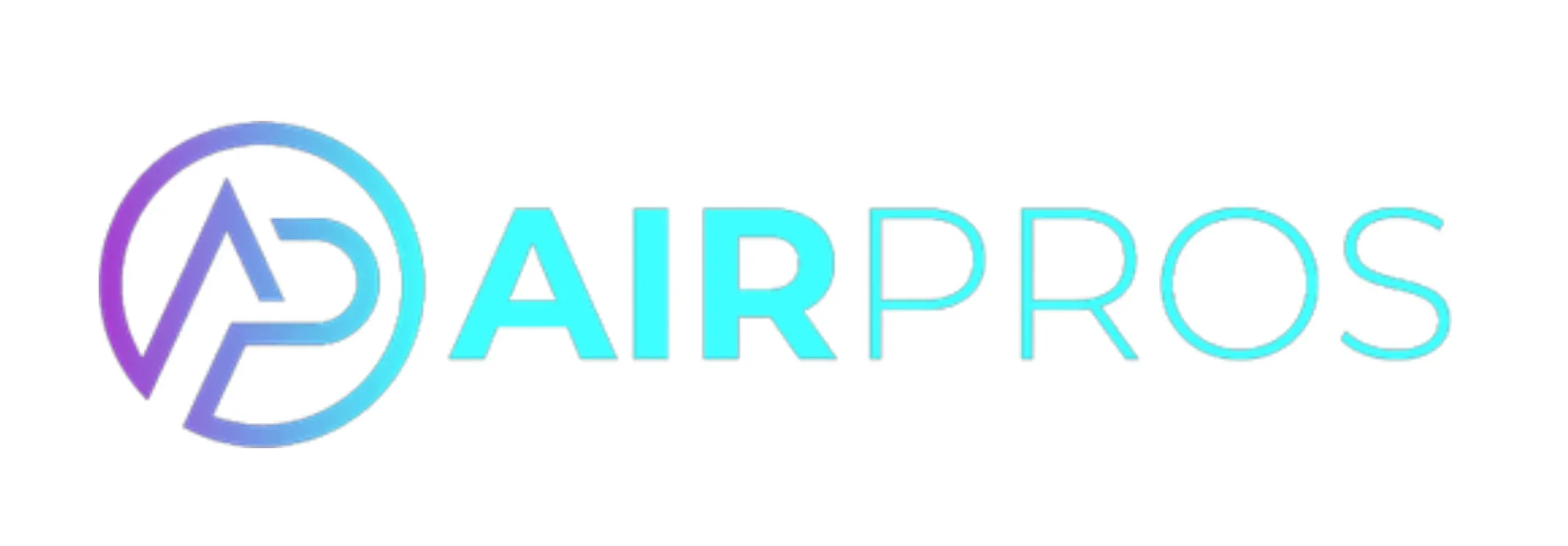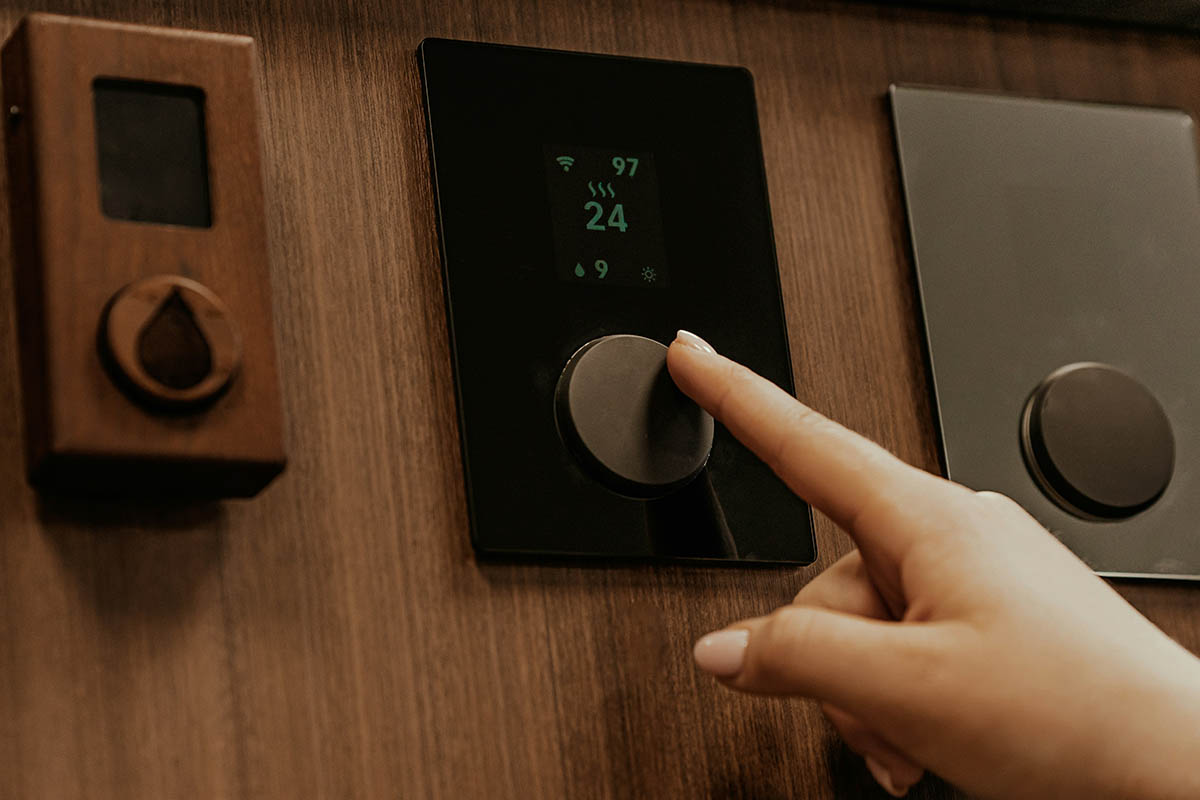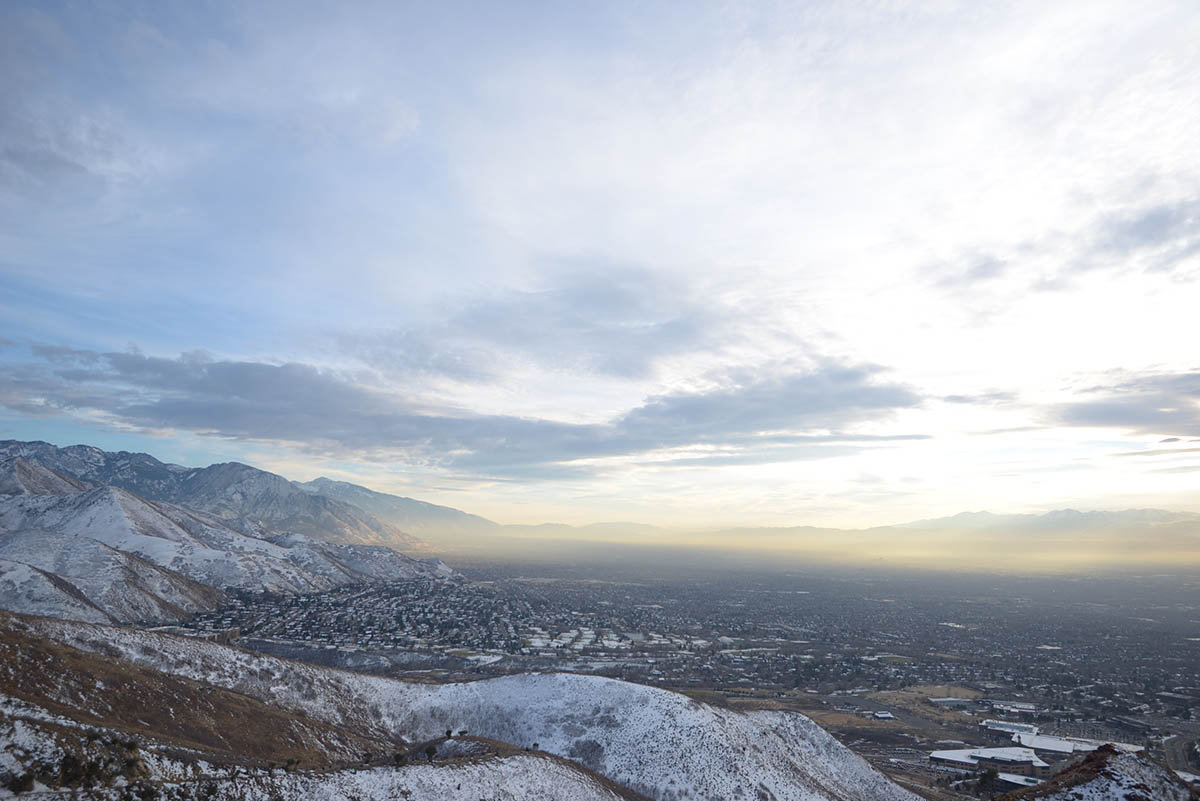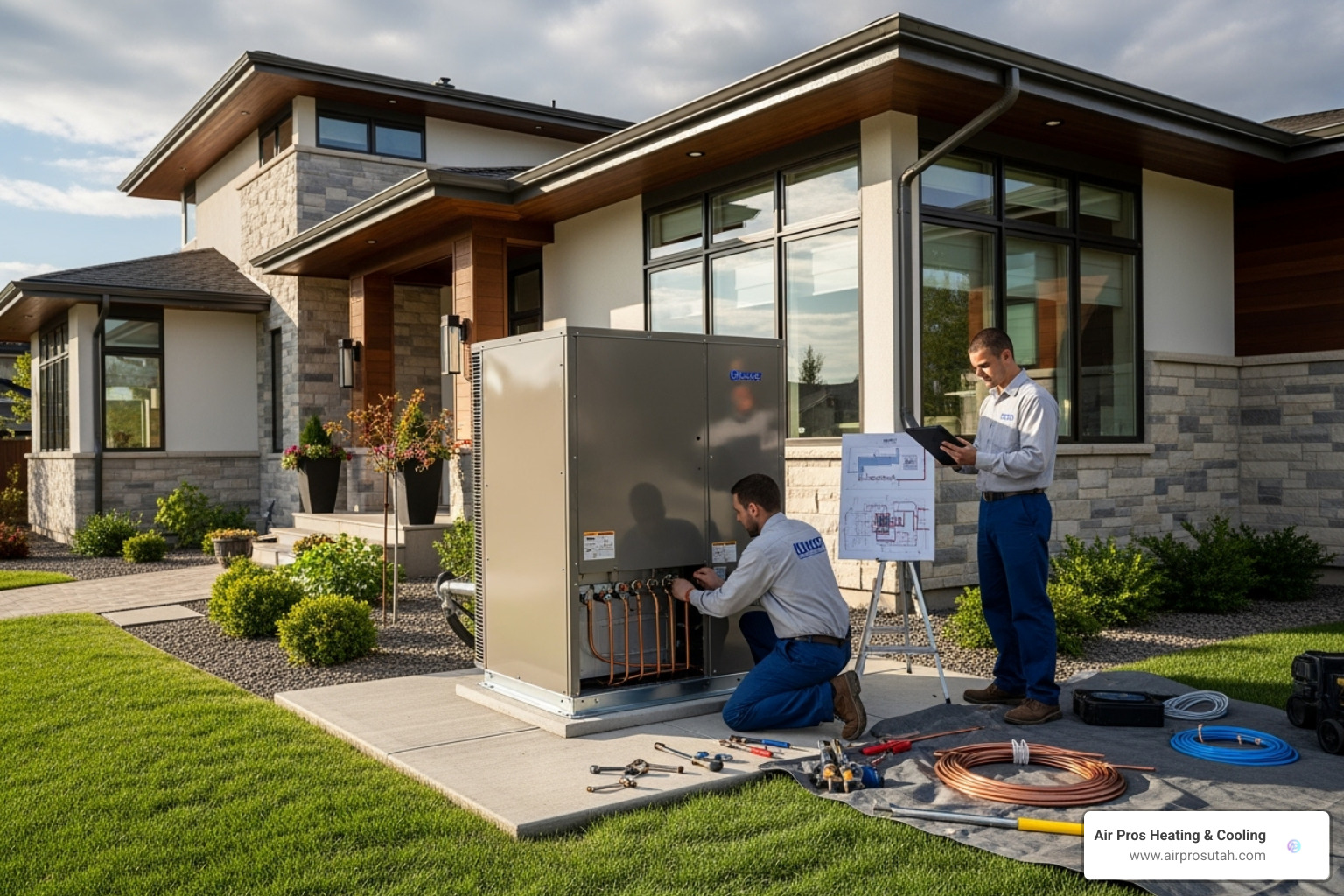
Pump Up the Heat, Not the Price—Heat Pump Installation Costs Explained
Unpacking the Investment: Heat Pump Installation Costs at a Glance
The cost of installing heat pump systems is a key question for homeowners seeking efficient heating and cooling. While prices vary, here are some typical ranges:
- Overall Heat Pump Installation: Expect a range from $3,000 to over $20,000, depending on the type and complexity.
- Single-Zone Mini-Split System: Typically ranges from $4,000 to $8,500.
- Whole-Home Ducted Air-Source System: Costs usually fall between $8,000 and $15,000.
- Geothermal Heat Pump System: These are significantly more, often starting at $25,000 and going up to $50,000 or more.
Heat pumps are a smart choice for year-round comfort, efficiently handling both heating and cooling for significant energy savings. This guide will help you understand the costs and factors influencing your final price.
I'm Alex Wiltz, founder of Air Pros Utah Heating & Cooling. With years of experience, I've seen the factors that influence the cost of installing heat pump systems.
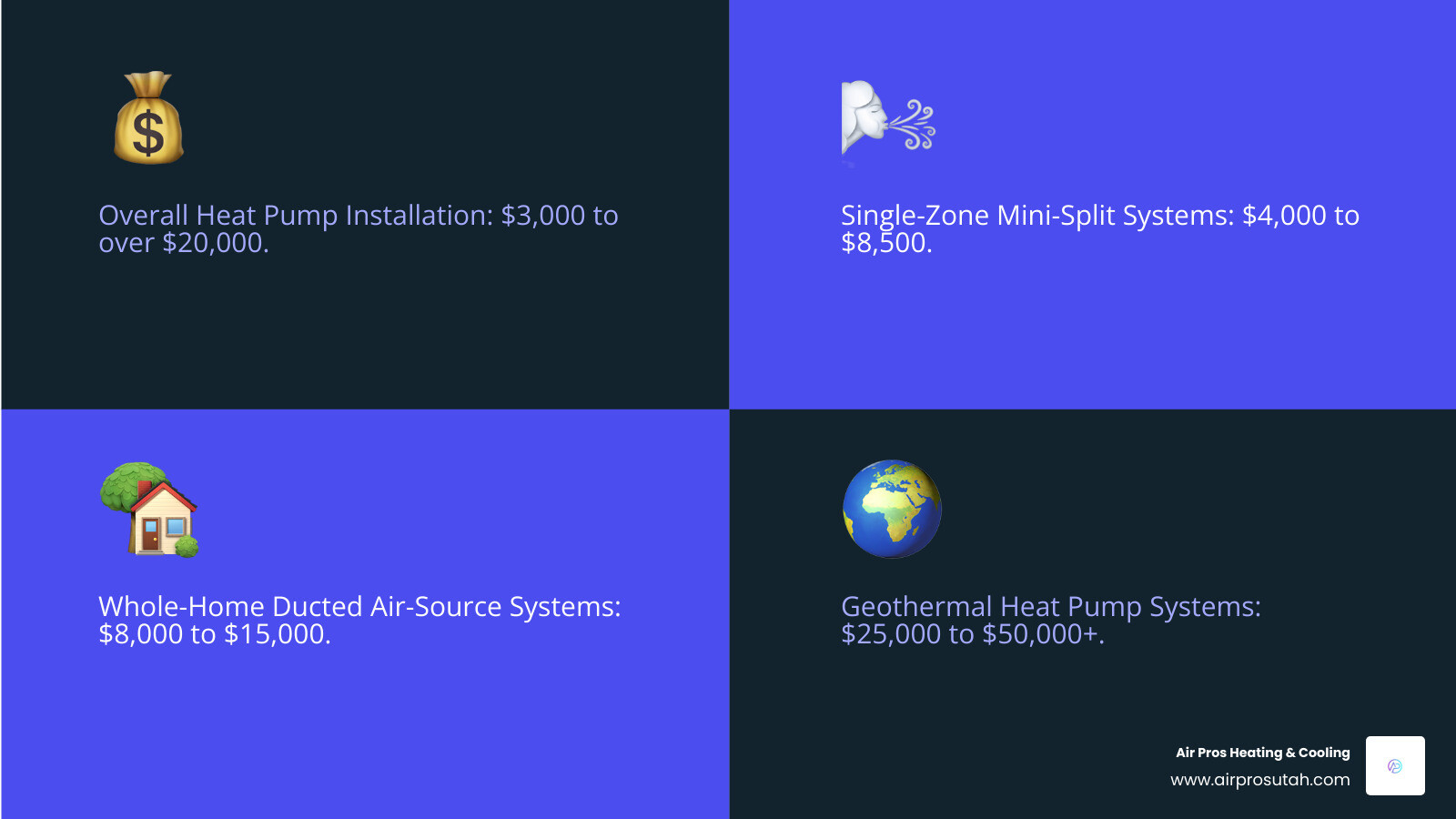
Cost of installing heat pump vocab to learn:
Understanding the Average Cost of Installing a Heat Pump by Type
The type of heat pump you choose is the biggest factor in the total cost of installing heat pump systems. Each type serves different needs at different price points.
What is the typical cost of installing a heat pump by type?
Let's review the main types and their expected investment.
Air-source heat pumps with ducted systems are a common choice for homes with existing ductwork. For a typical whole-home installation, you're looking at $8,000 to $15,000. Home size also matters: a 1,500 to 2,500 sq. ft. home might see costs of $17,000 to $23,000, while a larger 2,500 to 5,500 sq. ft. home could be $22,500 to $28,000. If you're just adding a heat pump to an existing furnace, the cost is lower, around $8,500 for a basic model or $10,500 for a premium one.
Ductless mini-split systems don't need ductwork, making them perfect for older homes, additions, or room-by-room temperature control. A single-zone system typically runs $4,000 to $8,500, while multi-zone systems range from $4,500 to $15,000. With ductless heat pumps, you can set different temperatures in different rooms, saving energy by only conditioning the spaces you're using.
Geothermal heat pumps are the most efficient but also the most expensive. They use the earth's stable underground temperatures for highly efficient, year-round operation. The required underground piping pushes the cost of installing heat pump systems to $25,000 to over $50,000. Smaller homes might see costs between $12,000 and $25,000, but larger installations often exceed $30,000.
Here's a quick comparison of these types:
| Heat Pump Type | Average Installed Cost | Best For | Pros | Cons |
|---|---|---|---|---|
| Air-Source (Ducted) | $8,000 - $15,000 | Homes with existing ductwork; whole-home climate control | All-in-one heating & cooling; high efficiency; uses existing infrastructure; widespread availability | Requires ductwork; efficiency can drop in extreme cold (though cold-climate models mitigate this); can be complex to install if ductwork needs significant overhaul |
| Air-Source (Ductless Mini-Split) | $4,000 - $15,000 | Homes without ductwork; additions; zoned heating/cooling; personalized comfort | Room-by-room control; easy installation; highly efficient; no ductwork needed; flexible placement | Higher cost per zone than central system; multiple indoor units might be visually intrusive; requires careful sizing for each zone |
| Geothermal | $25,000 - $50,000+ | New constructions; long-term investment; maximum energy savings | Extremely high efficiency; very low operating costs; long lifespan; environmentally friendly | Very high upfront cost due to excavation; complex installation; not suitable for all properties; requires significant land for loops |
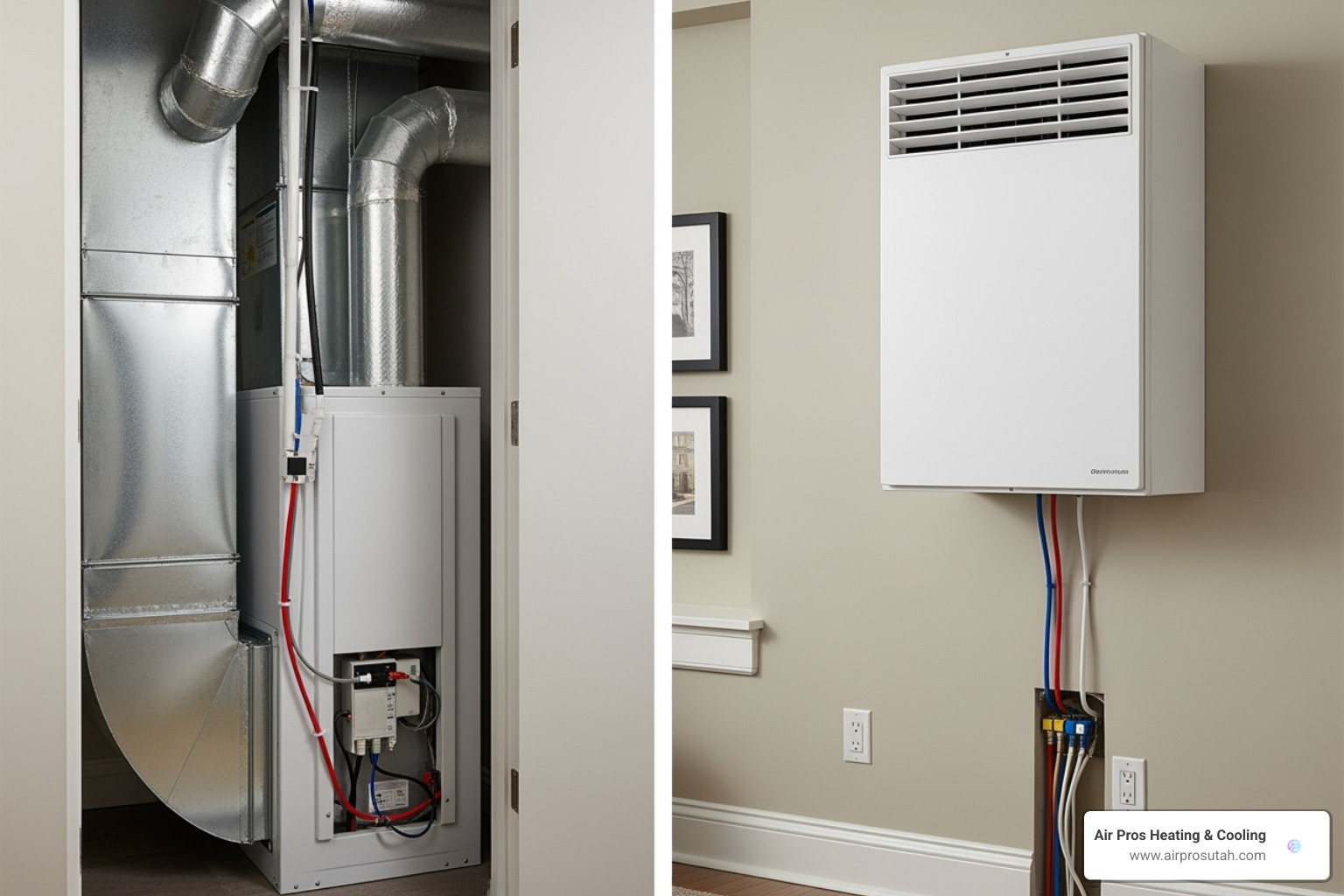
How do cold-climate heat pumps affect cost and performance?
In Utah's cold winters, especially in places like Park City or Heber City, standard heat pumps can struggle. Cold-climate heat pumps are designed to solve this problem. These advanced systems work efficiently even when it's -20°F or colder. While a standard unit may need backup heat at 30°F, a cold-climate model continues to pull heat from the frigid air.
Recent recent advances in technology allow these systems to maintain high efficiency at temperatures that would shut down older models. This improved performance comes with a higher upfront cost. While a standard ducted system runs $8,000 to $15,000, cold-climate models typically cost $10,000 to $19,000, with some premium systems exceeding $20,000.
The extra upfront cost is often offset by significant savings on energy bills, as you'll rely less on expensive backup heating during Utah's winters.
Key Factors That Influence Your Final Price Tag
Beyond the unit type, several other factors related to your home and needs will determine the final cost of installing heat pump systems.
What other factors affect the cost of installing a heat pump?
Home size and square footage is a major factor. A heat pump must be correctly sized for your home. An undersized unit runs constantly, while an oversized one will "short cycle," wasting energy and reducing its lifespan. For context, a whole-home system for a 1,500-2,500 sq. ft. home typically costs $17,000-$23,000, while a 2,500-5,500 sq. ft. home is usually $22,500-$28,000. High ceilings or open floor plans may require a larger unit, increasing the price.
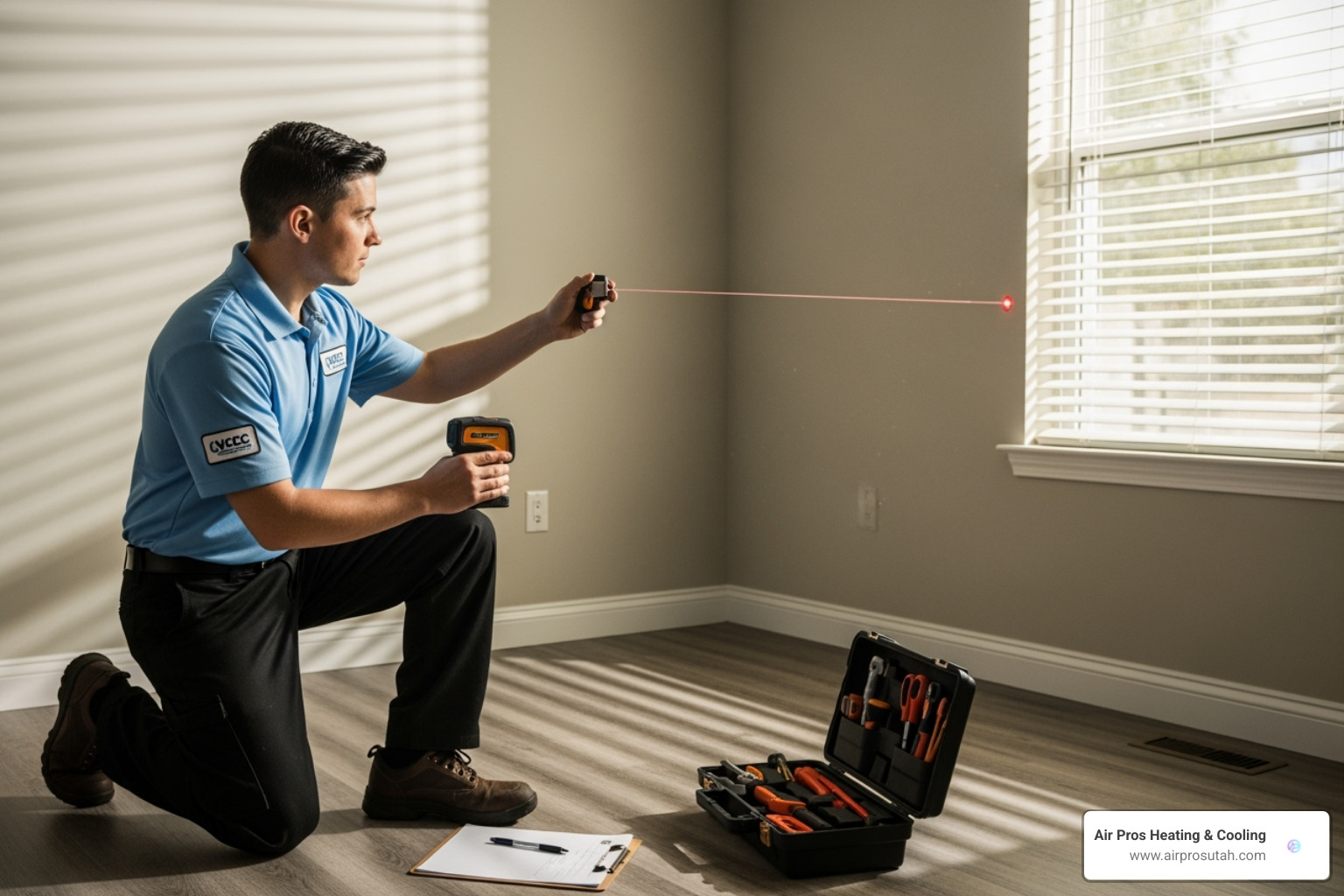
Efficiency ratings like SEER, HSPF, and COP indicate performance. Higher ratings mean better efficiency and lower utility bills but a higher upfront cost. A basic 14 SEER unit is less expensive than a 20+ SEER unit, but the extra investment often pays for itself in energy savings.
Brand and quality also affect the price. Premium brands with advanced features and better warranties cost more. High-efficiency models from leading manufacturers can exceed $20,000, while a basic unit might start around $8,500.
Local labor rates vary by location. In the SLC Valley, labor typically ranges from $1,200 to $3,500, with hourly rates between $75 and $150. A full installation usually takes 15 to 25 hours.
Climate and location are crucial. Utah's climate often requires cold-climate models, especially in areas like Park City or Alta. This specialized equipment costs more but is necessary for effective heating. For more details, see our guide on the Cost to Install Heat Pump and Air Handler.
Does my home's existing infrastructure impact the price?
Yes, your home's existing systems can significantly impact the final cost.
Existing ductwork condition is critical for ducted systems. Leaky or undersized ducts compromise efficiency and may need repairs or replacement. Small repairs might cost $10-$20 per linear foot, while a full replacement can range from $2,400 to $6,600. Installing new ductwork can push project costs from $4,000 to $24,000 or more.
Electrical panel capacity is another consideration. Older homes may need a panel upgrade to handle the heat pump's electrical load. Upgrading to a 200-amp panel can add $1,300 to $3,000 to your project, with more extensive work potentially costing $1,000 to $10,000.
Insulation quality and window efficiency affect the required size of your heat pump. A well-insulated home may need a smaller, less expensive unit, saving you money on the installation and on future energy bills. A poorly insulated home requires a larger, more expensive unit and will have higher operating costs.
Open uping Savings: Rebates, Long-Term Value, and Payback Period
While the upfront cost of installing heat pump systems can seem high, it's important to consider rebates and long-term savings, which make heat pumps a smart financial decision.
Are there government rebates or incentives available?
Yes, excellent incentives are often available that can significantly reduce your out-of-pocket cost.
Federal Tax Credits for qualifying energy-efficient air-source heat pumps can cover 30% of project costs, up to $2,000. This is a direct reduction in the taxes you owe. Geothermal systems also qualify for a 30% credit. Find details on the Federal tax credit page on the ENERGY STAR website.
State and Local Incentives may also be available. We encourage customers to check the Database of State Incentives for Renewables and Efficiency (DSIRE) for Utah-specific programs.
Utility Company Rebates from local providers can also lower your cost. We can help you find potential HVAC Rebates and Incentives, including Dominion Energy Rebates. Combining incentives can dramatically lower the net cost. For example, a $17,000 system could cost as little as $7,000 after a $10,000 rebate in some areas.
What are the long-term savings and payback period?
The long-term savings on energy bills are impressive. Heat pumps are highly efficient because they move heat rather than creating it.
This leads to Reduced Energy Bills. Heat pumps can lower electricity use by 30% to 70% for heating and 20% to 50% for cooling. Homeowners switching from electric furnaces can save around $898 per year, while those with oil furnaces could save $1,000 to $3,500 annually. They can reduce energy use by 50 percent compared to electric resistance heat.
The Payback Period—the time it takes for energy savings to cover the installation cost—varies but is often just 5 to 10 years. With generous incentives, it can be even quicker.
Finally, installing a heat pump can lead to an Increased Home Value. As a major energy-efficient upgrade, it can increase your home's value by up to 3%. To compare systems, read our insights on Heat Pump vs Furnace: What's Right for You?.
The Installation Process & Other Potential Costs
Understanding the installation process and other potential costs helps you budget accurately for your new system's lifespan.
What is the typical installation process and timeline?
Our certified HVAC installers ensure a smooth, professional process. It typically includes:
- In-home consultation and sizing: We assess your home's unique needs to select the right-sized system for optimal efficiency.
- Removal of old equipment: If you're replacing an old system, we'll remove it safely.
- Placement of new units: We position the new outdoor and indoor units for efficiency and aesthetics.
- Connecting lines: Our technicians connect all refrigerant and electrical lines to meet safety codes.
- System testing and commissioning: We test the system to ensure it's running perfectly and show you how to use it.
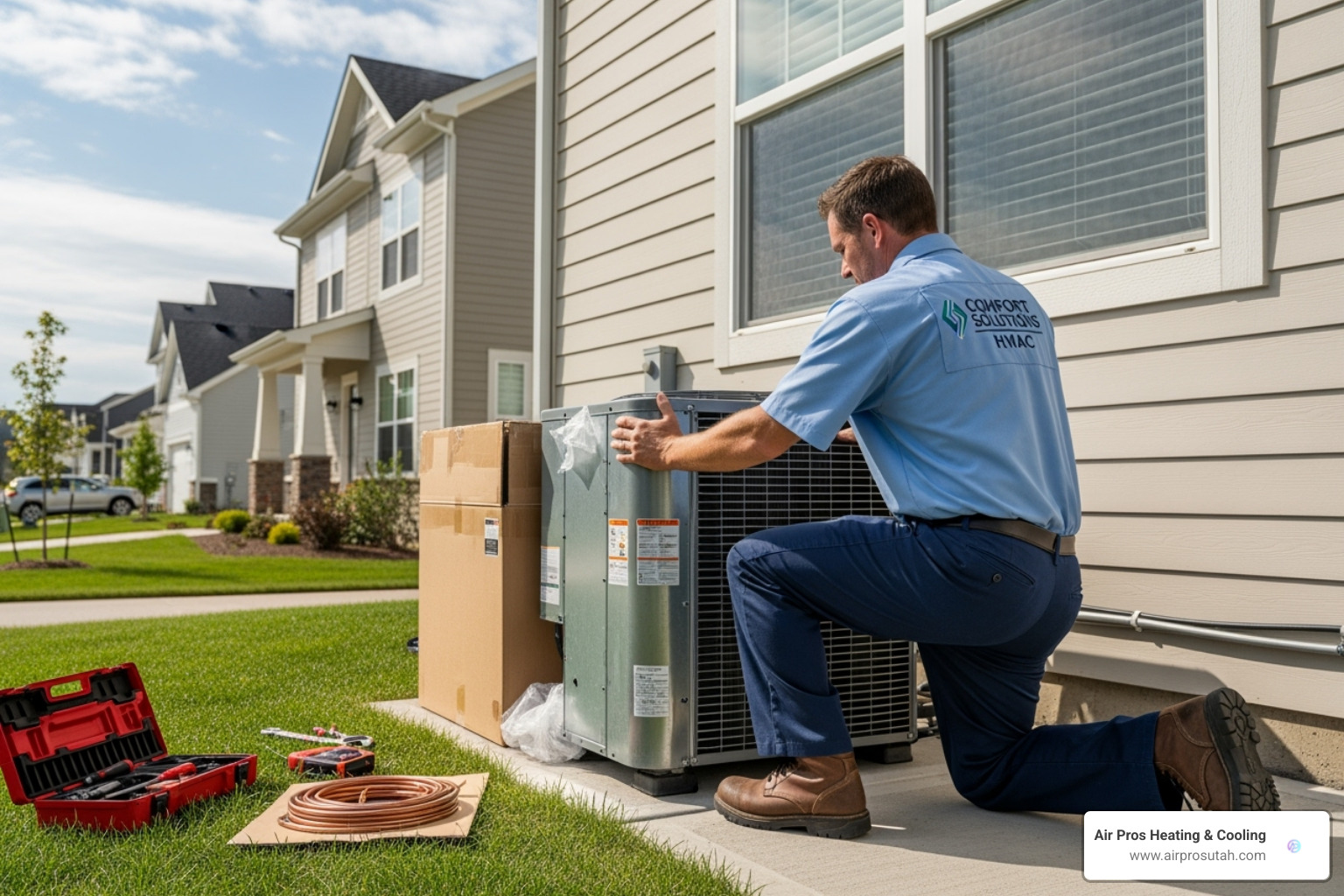
A standard installation takes about 8 hours, but jobs requiring a new furnace or extensive ductwork may take 1.5 to 2 days. We provide a clear timeline during your consultation. For more details, visit our Heat Pump Installation page.
What are the additional costs to consider?
Beyond the initial cost of installing heat pump systems, it's wise to factor in ongoing expenses.
Annual maintenance plans are essential to keep your system running smoothly and extend its life. A yearly tune-up typically costs $150 to $300.
Potential repairs can occur with any mechanical system. Minor fixes might cost $150 to $650. Regular maintenance helps prevent many common issues.
Filter replacements are a simple, recurring cost. Filters should be changed every 1-3 months to maintain air quality and system efficiency.
Electrical upgrades may be necessary if your home's panel can't support the new heat pump. This can add $1,000 to $10,000 to the upfront cost but is essential for safety and performance.
For more information on system care, explore our Heat Pump Maintenance services.
Frequently Asked Questions about Heat Pump Costs
Here are answers to some common questions about making this smart investment for your home.
Is a heat pump worth the investment?
Yes, for most SLC Valley homeowners, a heat pump is worth it. While the initial cost of installing heat pump systems can be higher than a traditional furnace or AC, the long-term benefits outweigh the expense. Heat pumps are incredibly efficient (often 200-300% efficiency), leading to lower utility bills. You also get heating and cooling from a single, environmentally friendly unit. Combined with available incentives, the combination of energy savings, year-round comfort, and increased home value makes a heat pump a worthwhile investment.
How long does a heat pump last?
A well-maintained heat pump has an average lifespan of 15 years. High-quality units with diligent annual maintenance can last 20 to 25 years. Consistent, professional servicing is the key to maximizing your system's lifespan and preventing costly repairs.
How does a heat pump compare to a furnace or AC unit?
A heat pump is an all-in-one system that replaces both a furnace and an air conditioner. In winter, it moves heat from the outside air into your home. In summer, it reverses the process, moving heat from inside your home to the outdoors.
This heat transfer method is far more energy-efficient than traditional systems that burn fuel to create heat. While a high-efficiency furnace might be 90-98% efficient, a heat pump can reach 200-400% efficiency under ideal conditions. This superior efficiency leads to much lower operating costs over time, making a heat pump an integrated, efficient, and eco-friendly way to keep your home comfortable.
Your Guide to an Efficient and Affordable Home
Investing in a heat pump is a big decision. Understanding the cost of installing heat pump systems, along with the benefits and incentives, helps you make a confident choice. While initial prices vary, the long-term energy savings and available rebates often make a heat pump the most economical and comfortable choice for year-round climate control.
Here at Air Pros Heating & Cooling, we provide personalized heating and cooling solutions across the SLC Valley. Whether you're in Alta, Bluffdale, Coalville, Cottonwood Heights, Draper, Emigration Canyon, Granite, Heber City, Herriman, Holladay, Kamas, Kearns, Magna, Midvale, Midway, Millcreek, Murray, Oakley, Park City, Riverton, Sandy, South Jordan, South Salt Lake, Taylorsville, Tooele, West Jordan, West Valley City, White City, or Salt Lake City, we're here to help. Our commitment is to deliver custom, high-quality service with clear communication and fair pricing. We specialize in ductless mini-split HVAC systems, offering incredible room-by-room control and energy efficiency.
Ready to see how a heat pump can transform your home? The best way to get a clear picture is to consult with trusted professionals. Our team at Air Pros Heating & Cooling is ready to provide a detailed estimate custom to your needs.
Get a professional quote for your heat pump installation and let's find the perfect solution for your home!

